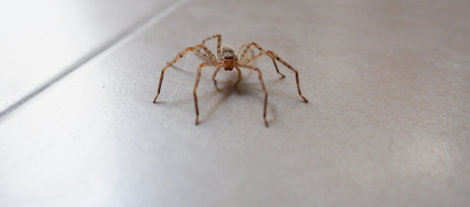The behavior of spiders, including their preferences for certain climates, often intrigues homeowners, especially when it comes to managing spider populations around their living spaces.
Understanding whether these eight-legged creatures favor warmer or cooler environments can be critical in devising effective strategies for spider control.
This article aims to shed light on the climatic preferences of spiders and offer insights into how these preferences influence their behavior throughout the year.

The Climate Preferences of Spiders
Do Spiders Seek Warmth?
Spiders are cold-blooded, or ectothermic, meaning they rely on external sources to regulate their body temperature. This biological characteristic significantly influences their preference for warm over cold environments.
Warmer conditions not only facilitate their metabolic processes but also enhance their ability to hunt and reproduce. During colder months, spiders may seek refuge inside homes, where the environment is more conducive to their survival.
Surviving the Cold: How Spiders Adapt
Despite their preference for warmth, many spider species have developed remarkable adaptations that allow them to survive in cooler temperatures. Some undergo a process similar to hibernation, known as diapause, slowing down their metabolism to conserve energy throughout the winter.
Others produce a natural antifreeze compound that prevents ice crystal formation in their bodily fluids, enabling them to withstand freezing temperatures.
Spider Behavior Across Seasons
Spring and Summer: A Time for Activity
As temperatures rise in the spring and summer months, spiders become increasingly active. This period is characterized by heightened feeding and mating activities, as insects – spiders’ primary food source – are more abundant. Consequently, the visibility and presence of spiders in and around homes tend to increase during these warmer seasons.
Fall and Winter: Seeking Shelter
In contrast, the onset of cooler weather in the fall prompts spiders to start looking for shelter to survive the winter months. This behavior explains why homeowners might notice an uptick in indoor spider sightings during autumn. While some spiders die off in the cold, those that find their way indoors or have adapted to lower temperatures can continue to thrive throughout the winter.
Effective Spider Control Strategies
Managing Spiders in Warm Weather
To prevent an influx of spiders during warmer months, focus on eliminating their food sources by controlling insect populations around your home. Regularly clearing away webs and ensuring windows and doors are properly sealed can also deter spiders from entering your living spaces.
Preventing Winter Intrusions
As colder weather approaches, inspect your home for cracks, crevices, and other potential entry points. Sealing these areas can significantly reduce the likelihood of spiders seeking refuge inside. Additionally, reducing clutter and maintaining a clean home can make your living spaces less appealing to spiders looking for a warm haven.
Unlocking the Secrets of Spider Behavior: Strategies for a Spider-Free Home
While spiders generally favor warm environments due to their ectothermic nature, many species have adapted to survive in cooler climates. Understanding these preferences and behaviors is crucial for effective spider control throughout the year. By taking proactive measures to deter spiders from entering your home and eliminating their food sources, you can manage spider populations and maintain a comfortable living environment regardless of the season.
At Peak Pest Control, we’re dedicated to providing you with effective spider management solutions for your home, year-round. Our expertise means we can offer targeted strategies to keep your home comfortable and pest-free. Contact Peak Pest Control today, and let us help you create a spider-free zone.


